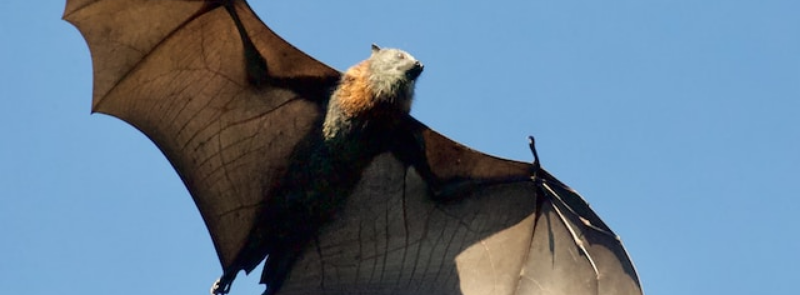
When It Occurs
Every April 17th
Timeline
Days Passed (1042)
# Hashtags
#NationalBatAppreciationDay #SupportConservation
Despite bats having a somewhat ominous reputation, they are truly among the most fascinating and intriguing animals on Earth. Among the over 1,200 species of bats, only the vampire bat feeds on blood. The majority are either insectivores, exclusively consuming insects, or omnivores, feeding on items like fruit, nectar, and pollen. Given the captivating nature of these creatures, it's recommended that everyone participate in National Bat Appreciation Day, an annual holiday observed on April 17th.
Why Bats Are Important
Bats play a crucial role in maintaining the balance of ecosystems around the world. They provide numerous ecological benefits, including:
- Pest Control: Bats are natural pest controllers. A single bat can consume thousands of insects, such as mosquitoes and agricultural pests, in one night, reducing the need for chemical pesticides.
- Pollination: Many bat species are important pollinators, particularly in tropical and desert ecosystems. They help pollinate plants like agave (used to make tequila) and various fruits, contributing to biodiversity and food production.
- Seed Dispersal: Bats aid in seed dispersal for various plants, helping regenerate forests and spread plant species across large areas.
History and Origins of National Bat Appreciation Day
National Bat Appreciation Day is observed on April 17th, a date chosen to coincide with the spring emergence of bats from hibernation in many parts of the United States. This observance was established by conservation organizations and bat enthusiasts to raise awareness about the importance of bats and the need for their protection.
Bats have been misunderstood and feared for centuries, often associated with myths, legends, and superstitions. National Bat Appreciation Day seeks to challenge these misconceptions and promote a positive understanding of bats as vital components of healthy ecosystems.
Why Celebrate National Bat Appreciation Day?
- To Raise Awareness: National Bat Appreciation Day highlights the importance of bats in ecosystems and encourages people to learn more about these incredible animals.
- To Support Conservation Efforts: Bats face numerous threats, including habitat loss, disease (such as white-nose syndrome), and climate change. This day is an opportunity to support conservation initiatives aimed at protecting bat populations.
- To Educate and Dispel Myths: Many people fear bats due to misconceptions and myths. National Bat Appreciation Day provides a chance to educate others about the true nature of bats and their benefits.
How to Celebrate National Bat Appreciation Day
- Learn About Bats: Take the time to learn more about bats, their behavior, and their role in ecosystems. There are many resources available, including books, documentaries, and websites dedicated to bat conservation.
- Visit a Bat Sanctuary or Nature Center: If possible, visit a local bat sanctuary, nature center, or wildlife reserve where you can observe bats and learn about their conservation. Many organizations host events or educational programs on National Bat Appreciation Day.
- Install a Bat House: Installing a bat house in your yard or garden can provide a safe roosting place for bats, helping to support local bat populations and reduce insect pests in your area.
- Support Bat Conservation: Donate to or volunteer with organizations that focus on bat conservation, such as Bat Conservation International or local wildlife groups.
- Share on Social Media: Use the hashtag #BatAppreciationDay to share facts, photos, and stories about bats. Help raise awareness and encourage others to appreciate these remarkable creatures.
Interesting Facts About Bats
- Diverse Species: There are over 1,400 species of bats worldwide, making up about 20% of all mammal species. Bats are found on every continent except Antarctica.
- Echolocation: Many bat species use echolocation to navigate and find food in the dark. They emit high-frequency sounds that bounce off objects, allowing them to "see" with their ears.
- Longevity: Bats are known for their longevity relative to their size. Some bat species can live for over 30 years in the wild.
- White-Nose Syndrome: A fungal disease known as white-nose syndrome has devastated bat populations in North America, killing millions of bats since it was first discovered in 2006. Conservation efforts are ongoing to combat this disease and protect bat species.
The Cultural Significance of Bats
- Myths and Superstitions: Bats have often been associated with darkness, death, and the supernatural in various cultures. While these associations have contributed to their negative image, they have also made bats symbols of mystery and transformation.
- Bats in Popular Culture: Bats have become iconic in popular culture, often depicted in literature, film, and folklore. Characters like Dracula and Batman have cemented bats as symbols of both fear and heroism.
- Bats as Symbols of Good Luck: In some cultures, bats are seen as symbols of good luck and prosperity. For example, in Chinese culture, the word for bat is "fu," which sounds like the word for good fortune.
Challenges Facing Bats
- Habitat Loss: Deforestation, urbanization, and agricultural expansion have led to the destruction of bat habitats, threatening many species with extinction.
- Climate Change: Climate change affects bats by altering their habitats, food sources, and hibernation patterns, making it harder for them to survive.
- Human Disturbance: Bats are sensitive to disturbances, particularly during hibernation and maternity periods. Human activities such as cave exploration, construction, and pollution can negatively impact bat populations.
Why People Support Bat Conservation
- Ecosystem Balance: Bats play a critical role in maintaining balanced ecosystems by controlling insect populations, pollinating plants, and dispersing seeds.
- Biodiversity: Protecting bats helps preserve biodiversity and the health of ecosystems that humans rely on for food, clean water, and air.
- Scientific Value: Bats have unique biological traits, such as their echolocation abilities and immune systems, which make them valuable subjects for scientific research.
National Bat Appreciation Day is a meaningful observance that encourages people to learn about and support these vital creatures. Whether through education, conservation efforts, or simply spreading awareness, this day is an opportunity to celebrate the importance of bats and ensure their survival for future generations.


